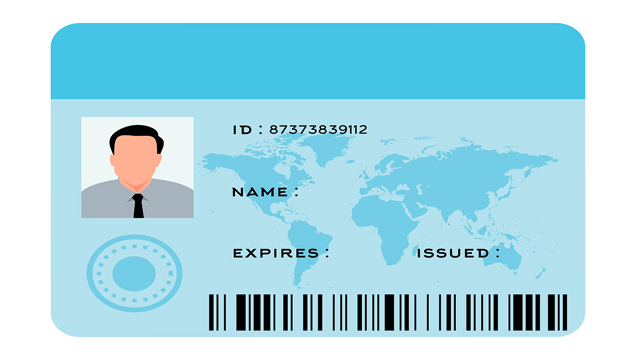Month: June 2023
Superannuation Guarantee Contribution: Consequences for Late Payment

Importance of Employers’ SG Obligations
Under the Superannuation Guarantee (Administration) Act 1992, Australian employers are obligated to contribute a certain percentage of their employees’ earnings to a complying superannuation fund, paid quarterly and within specified due dates.
The superannuation guarantee (SG) contribution must be paid to all employees over the age of 18 years, no matter how often an employee works in a month. Any employee under the age of 18 years who works more than 30 hours per week is also entitled to the SG. The SG is a legal entitlement for most employees in Australia and payment by employers is compulsory.
From 1 July 2023 the SG increases by 0.5% to 11% of an employee’s earnings. Setting aside additional remuneration funds will be necessary to meet this new payment obligation.
It is important that employers accurately calculate the SG for each employee and make timely payments to their employees’ nominated superannuation funds.
There are benefits, for both employers and employees, to paying SG contributions on time:
- Regular and timely SG contributions ensure an employee’s retirement funds can grow over time and make the most of compounding interest on their investments. Delaying or neglecting SG contributions could negatively impact an employee’s long-term financial security.
- An employer-employee relationship is enriched by trust and satisfaction when an employer fulfils their obligation of prompt and complete remuneration. However, the relationship could be negatively impacted by late or unpaid SG contributions as a part of an employee’s remuneration.
- Paying the SG on time can help a business maintain its reputation. Public knowledge of SG non-compliance could damage a business’s reputation in its industry and among potential employees, questioning a business’s commitment to the financial wellbeing of its staff. Also, if employees make a complaint, this could lead to financial penalties for an employer.
Consequences for Late Payment of SG Contributions
Failure to pay the SG on time can result in penalties and charges imposed by the Australian Taxation Office (ATO). These penalties may include interest charges, administration fees, and even legal action.
The ATO closely monitors SG compliance and a fine imposed by the ATO is called Superannuation Guarantee Charge, which is composed of outstanding SG contributions (back payments), interest, and an administration fee.
Businesses may incur increased tax liabilities for late payment of SG contributions. This is because SG contributions are tax-deductible for Australian businesses, except when an SG contribution is paid late. In the case that an employer does not pay SG contributions on time, the ATO will automatically disallow any tax-deductibility of those SG amounts.
Once an employer lodges their SG report via Single Touch Payroll (STP), they can check that the report was received successfully at the ATO. The software service provider (SSP) should be able to alert an employer of any reporting errors, however if a SG amount is late, then the next step is for an employer to lodge a Superannuation Guarantee Charge Statement.
Lodging a Superannuation Guarantee Charge Statement
If an employer is late paying their quarterly SG amount, then they must notify the ATO of any late SG payments via the ATO’s process of lodging a Superannuation Guarantee Charge Statement within 28 days of the quarterly due date.
An employer is then liable to pay the Superannuation Guarantee Charge (SGC) which is made up of:
- SG shortfall amounts, plus
- Interest on SG shortfall amounts, plus
- Administration fee of $20 per employee per quarter
If the SGC is not paid, then a general interest charge (GIC) is applied to the full outstanding amount. The GIC accrues and compounds daily, so it would behove an employer to pay the SGC by the due date.
It is crucial to both employers and employees that SG contributions are paid on time and employers should prioritise timely payments with respect for the ATO’s guidelines and deadlines.
How can YML help?
Talk to our YML Business Services Team today to see how YML Group can assist you with your superannuation guarantee obligations. For more information, view our website and contact us on (02) 8383 4455 or by using our Contact Us page on our website.
Australian Taxation Agents require Clients to provide Photo ID

Identity breaches by nefarious people in our widening technological world is cause for the Tax Practitioners Board’s requirement for tax practitioners to verify their clients’ identities with a form of photo identification. This means greater protection for you of your personal and financial information and transactions.
To mitigate devastating financial consequences affecting Australians and the Australian economy, the Tax Practitioner Board asks tax agents to ensure that they adequately authenticate their individual clients’ identities. To achieve this, clients must provide evidence to their tax agent, including a form of identification that contains a photograph.
What you need to provide to your tax agent?
As an Individual seeking to engage a registered tax practitioner in your own right, you are required to provide your Full Name plus either your Residential Address or your Date of Birth. To do this, you will need to show original documentation as evidence:
An original or certified copy of a primary photographic identification document; or BOTH of the following:
An original or certified copy of a primary non-photographic identification document; and
An original or certified copy of a secondary identification document.
| TYPE OF ID | EXAMPLES |
| Primary photographic ID |
|
| Primary non-photographic ID |
|
| Secondary ID |
|
YML Group – Your registered Tax Agent
At YML Group we value our clients and, as directed by the Tax Practitioners Board, we wish to protect both your identity and our practice. Within the month of June, you will receive an email from us requesting the necessary identification documentation to assist us with validating your identity with YML Group.
How can YML help?
Talk to our YML Chartered Accountants Team today to see how YML Group can assist you with your identification process. For more information, view our website and contact us on (02) 8383 4400 or by using our Contact Us page on our website.
Take Advantage: Capital Gains Tax (CGT) Concessions for Small Businesses

Australia’s capital gains tax (CGT) concessions are available for eligible small businesses. There are four concessions designed to provide a financial reward to small business owners by significantly reducing, deferring, or even eliminating a CGT liability when selling an active business asset.
YML Group can help you with your applications for these four CGT concessions:
1. Small Business 15-Year Exemption
If you have owned an active asset for 15 years or more and you are 55 years or older and retiring, you will not pay CGT upon the sale of an active asset. You may also contribute an amount from the sale to your superannuation fund. See Small Business Retirement Exemption.
2. Small Business 50% Active Asset Reduction
If you have owned an active asset (for example, a business property or a piece of business equipment) for at least 12 months, you may be eligible for a 50% reduction in the capital gain from the sale.
3. Small Business Retirement Exemption
If you sell an active business asset and you are under 55 years of age, you may be able to contribute up to $500,000 of the CGT-exempt capital gain to your superannuation fund, without affecting your non-concessional contribution limit. There is a lifetime limit of $500,00 of capital gains contribution to superannuation.
4. Small Business Rollover
This concession enables you to defer paying CGT on the sale of an active asset and use the sale proceeds towards the acquisition of another active asset, between one year prior to the sale and up to two years after the sale. This allows you to defer any CGT liability until the new active asset is sold.
Each of these four CGT concessions has its own requirements and limits, so we suggest you seek professional advice to understand complexities and the specific implications for your business circumstances.
You may apply for as many concessions as you are eligible, in a certain order, until a capital gain is reduced to zero. What are the eligibility criteria? Here, we provide an overview of the general rules of eligibility:
a. Your business must be classified as a small business entity (SBE) for taxation purposes, with an aggregated turnover of $2 million or less in an income year.
b. An asset to be sold must be an ‘active’ asset meaning an asset that is used or held for use while carrying on a business, or an asset associated with a business being transitioned. This is known as the Active Asset Test which must be met.
c. Any disposal of intangible assets such as shares, or trust interests, must meet additional criteria.
d. The Significant Individual Test requires you to be a significant individual in a company or trust with a right or interest in the business, thereby being actively involved in the business of a company or trust immediately before the sale of an active asset.
As we near the end of the financial year 2023, small businesses start looking for ways to reduce tax liabilities. Take advantage of the small business CGT concessions now.
How can YML help?
Talk to our YML Chartered Accountants Team today to see how YML Group can assist you with all CGT concessions. For more information, view our website and contact us on (02) 8383 4400 or by using our Contact Us page on our website.


